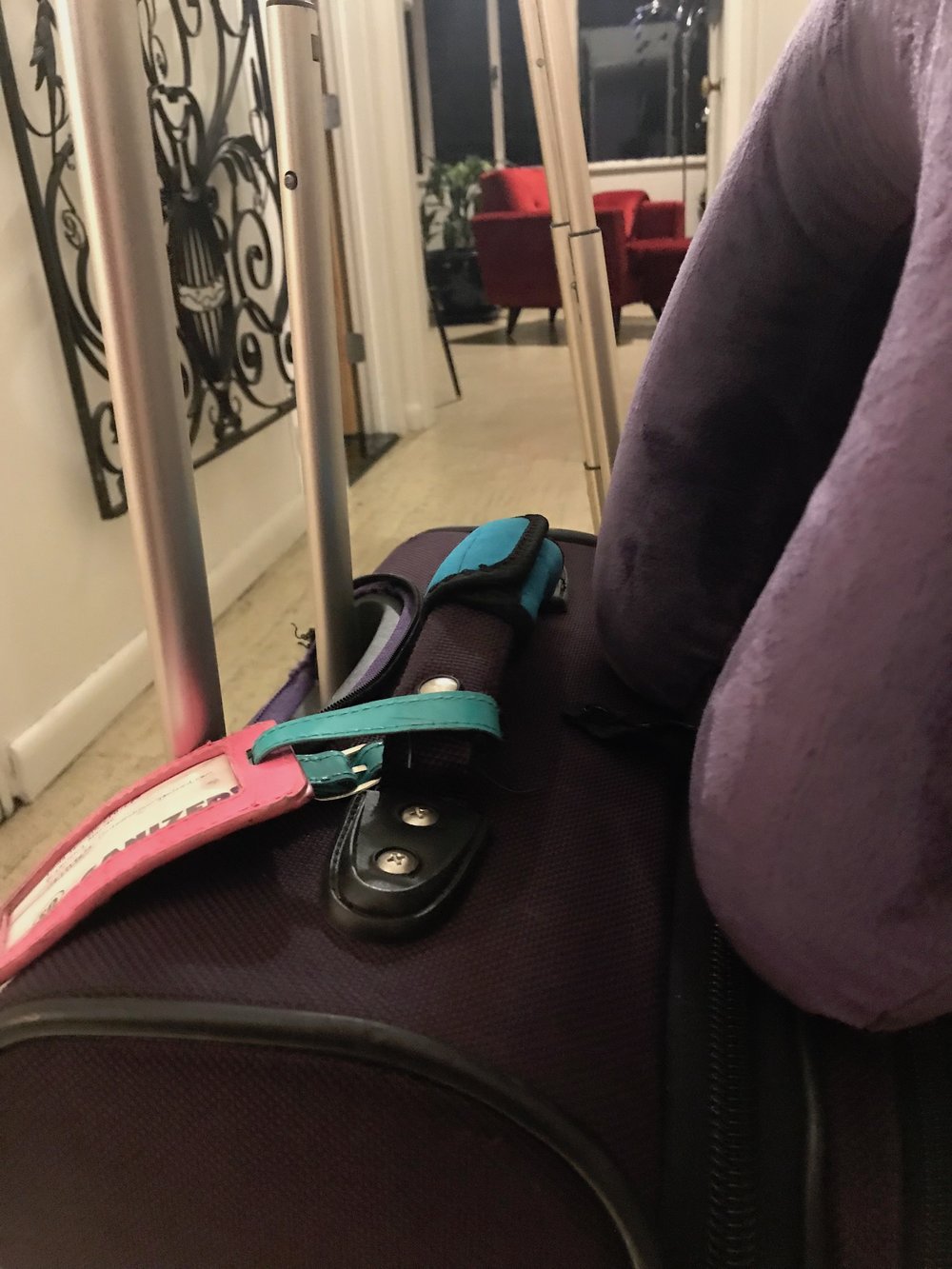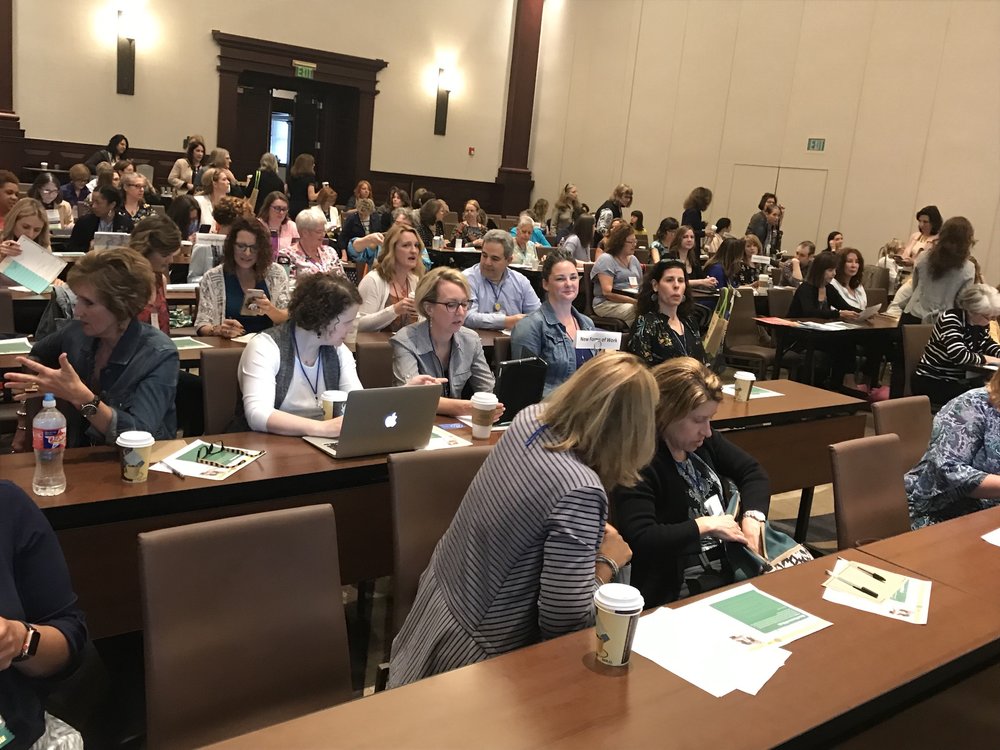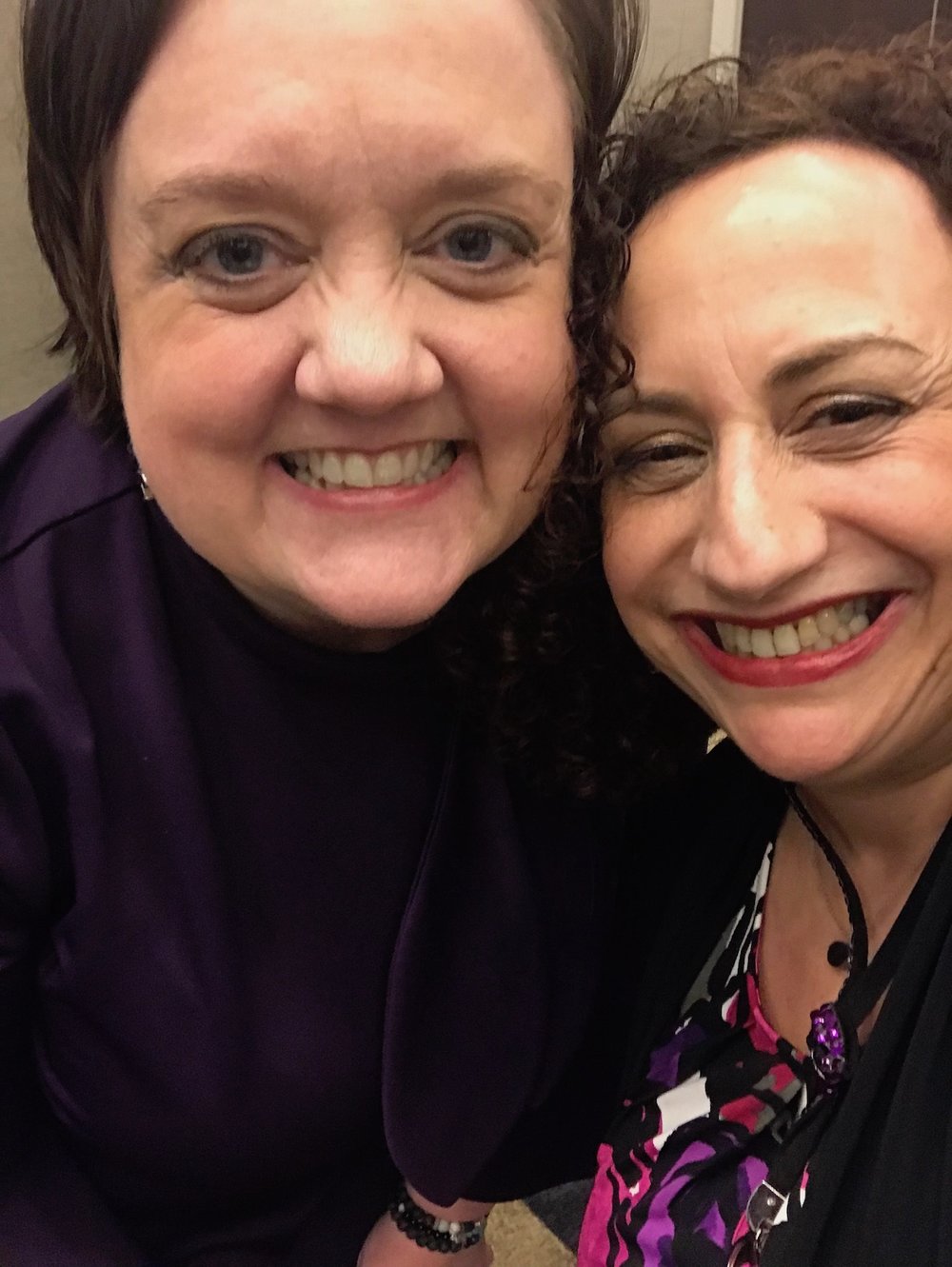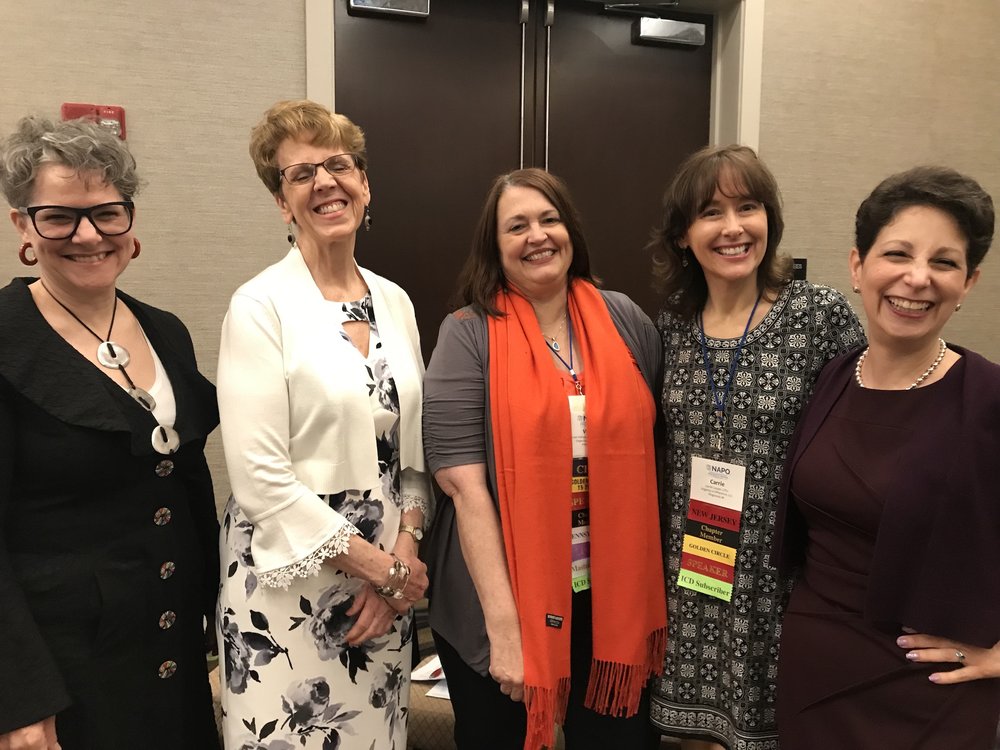 There are opportunities each day to choose success and positive outcomes. I just returned from the Institute for Challenging Disorganization’s (ICD) annual conference in Portland, Oregon. What an amazing time I had with learning, meeting with colleagues from around the world, exploring a new city, and taking a break from my normal routine! You may already have seen some photos and sharing about the trip from my recent tweets and Facebook posts. The learning that kept appearing for me this week was centered on having happy, successful and joyous days. I’ll share some highlights with you.
There are opportunities each day to choose success and positive outcomes. I just returned from the Institute for Challenging Disorganization’s (ICD) annual conference in Portland, Oregon. What an amazing time I had with learning, meeting with colleagues from around the world, exploring a new city, and taking a break from my normal routine! You may already have seen some photos and sharing about the trip from my recent tweets and Facebook posts. The learning that kept appearing for me this week was centered on having happy, successful and joyous days. I’ll share some highlights with you.
Face Fear
We’re all afraid of something. Fear is real, even if our fears aren’t based on anything concrete. Fear is real in our minds. One of my fears (that has actually happened on several occasions) is the fear of being locked out of my hotel room. Sometimes it’s been a glitch with the key card and other times it’s been about my door-opening challenge. I’m not great with keys, locks and doors. For this conference, I decided to try the hotel’s new technology. They had an option to get a digital key, which uses the hotel app on my iPhone to open the door. Needless to say, I was nervous each time I stood in front of my door thinking, “Is this going to work?” But consistently, it opened every time. I never tired of it working. Each time it opened, I smiled and felt giddy. I felt like the winner of a game. Facing my fear did wonders for increasing my daily happiness quotient.
Journey Together
One of my favorite speakers was Satwant Singh, nurse consultant from London, who spoke about reclaiming your life and space, especially when working with individuals with hoarding tendencies. He was a soulful, gifted speaker with a great sense of humor and humility who engaged the group through interactive exercises and discussions. One of the things he said that when working with his clients, he tells them, “We are on this journey together.” I often express something similar when working with my organizing clients. We all have challenges. Knowing you have support along the way increases your daily successes.
Prioritize People
Another wonderful speaker was the energetic, vivacious, Ayla Lewis from Happy Brain Science, who presented a workshop on the science of being happy and productive at work. There were so many takeaways from her talk, but one that stood out was about choosing happiness by investing in relationships. One way to do that was through “active, constructive responding.” I loved this concept she described as celebrating and savoring the good times with those around you. That includes something as simple as giving high fives for positive successes they’ve experienced or taking time to express that you heard them talk about a success they had. As she said, being there for your people during the “good times,” and not just the bad, has an even bigger impact on your relationships. Joining in their happiness increases yours.
Be Mindful
Mindfulness, the practice of stepping back and just noticing, was the “hot” topic that was mentioned in almost every conference session. Some of the speakers had us participate in some group mindfulness exercises. The mindfulness training benefits mentioned included decreased feelings of depression and anxiety, reduced stress, and improved executive function for aging and ADHD. One mindfulness exercise we did was the 18-second practice of focusing on your breath. Try it by breathing in for four counts, holding your breath for six counts, and exhaling for eight counts. Do you feel clearer, happier and ready to face what’s next? Taking time for breath awareness creates more successful choices and moments.
Social Support
We had a panel of aging experts, Barbara Cohen Grant, LCSW, Rick Steinberg, MD and Robert Winningham, Ph.D., talk about the physical, mental health, emotional and lifestyle change challenges facing adults with chronic disorganization as they progress into advanced age. They said that “social engagement and support is critical for well being,” especially with elders. The friends’ circle continues to decrease as grief and loss increase. The need for social engagement and support is essential.
Ban Should
The dynamic, knowledgeable speaker and mental health therapist, Kevin Ashworth, director of NW Anxiety Institute, spoke about the role mental illness in clients with disorganized lives. He shared a wealth of valuable quotes, statistics and insights. One in particular stood out. He said, “You cannot use the word ‘should’ or ‘shouldn’t’ without feeling bad.” What a powerful statement! How often do those words creep into your sentences? Developing an awareness and removing them from your conversations, seems like a guarantee for adding more happy, joy and success to each your day.
Let Go
The engaging, comedy writer and producer, Rick Green, shared his personal story, experiences and knowledge about living with ADHD, a neurodevelopmental syndrome. He suggested a phrase that appeals to their emotions, which can help people let go of a physical possession. When someone is struggling to let go, he suggests saying, “Someone would love this.” It reframes the potential act of loss to one of giving. What a beautiful way to experience success.
We can look to many areas to increase our daily experiences of happiness, joy and success. I’ve shared a few that were inspired by last week’s travels. What resonates with you? I’d love to hear your thoughts. Come join the conversation!

















